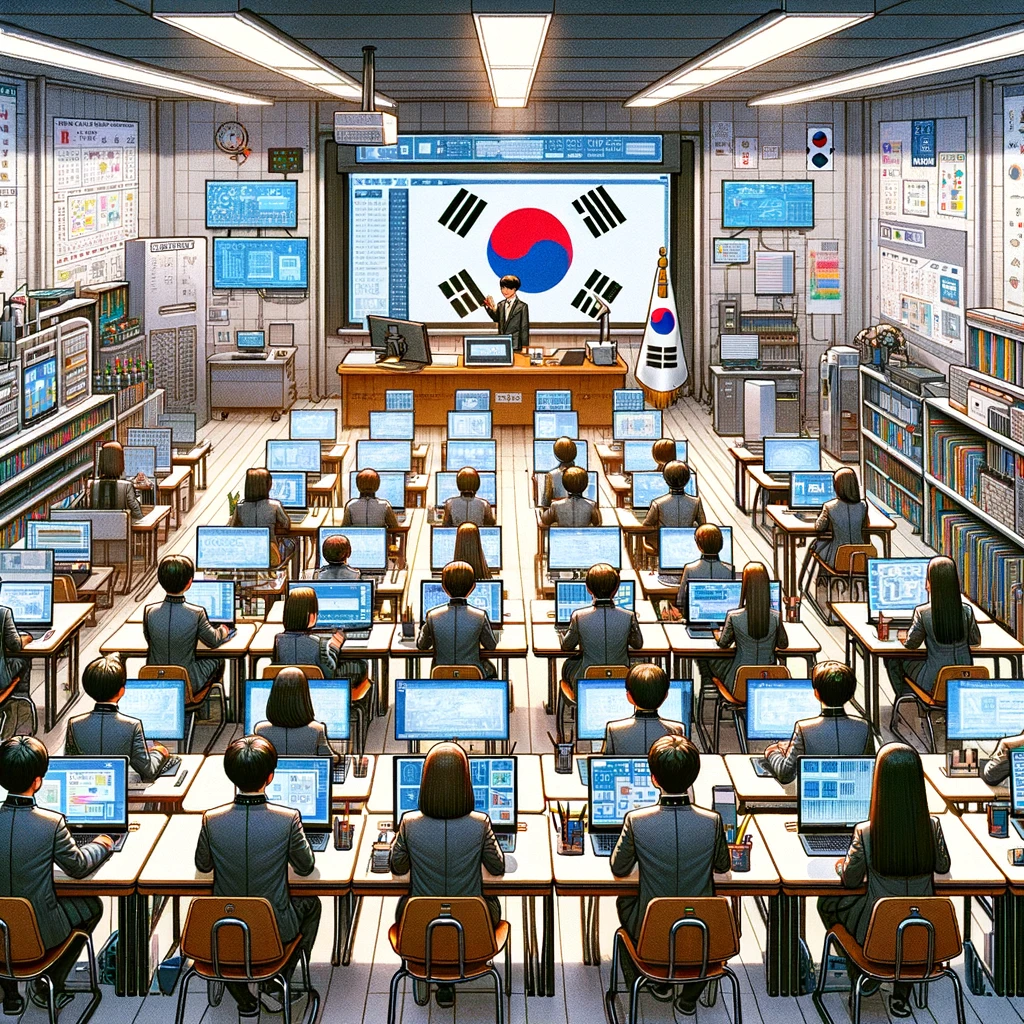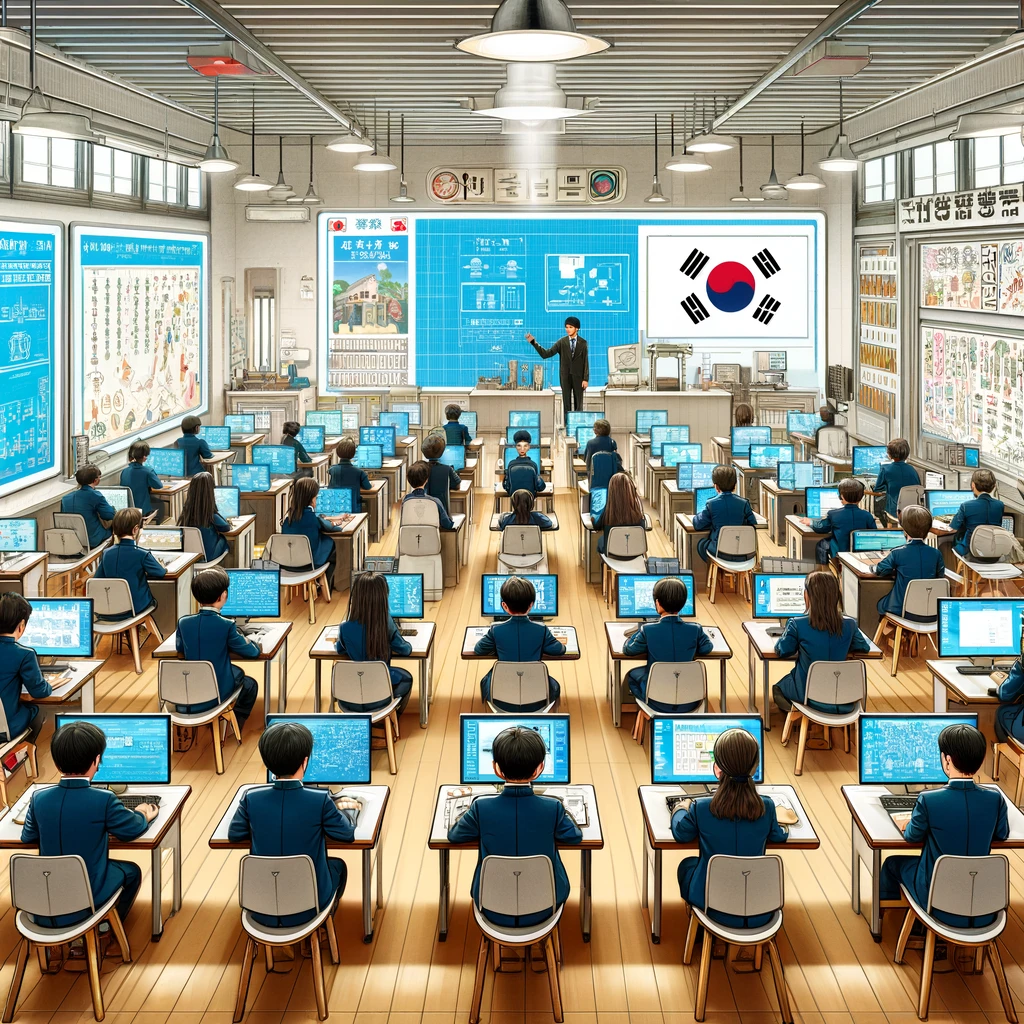Education in South Korea is renowned for its high standards and equally high pressures. As one of the world’s top performers in international education rankings, the country has a system that emphasizes hard work, competition, and high academic achievement. This article provides a comprehensive look at the various facets of the South Korean education system, from its structure and curriculum to the societal expectations and the future it prepares students for.
Structure of the Education System
South Korea’s education system is divided into three main levels: elementary school (grades 1-6), middle school (grades 7-9), and high school (grades 10-12). Elementary education is compulsory and free for all children, while middle school and high school education, although also compulsory, often involves significant costs related to uniforms, books, and particularly private tutoring.
After completing these stages, students can opt for higher education. Admission to universities is highly competitive, guided predominantly by the results of the College Scholastic Ability Test (CSAT), which is a determinant factor in a student’s future career and social status.
Academic Year and Curriculum
The academic year in South Korea begins in March and ends in February, with breaks in between. The curriculum is centrally set by the government and is very rigorous, especially in subjects like math, science, and English. This ensures a uniform standard of education across the country, but it also puts immense pressure on students to perform well in standardized tests.
The Role of Private Tutoring
Private tutoring is a significant aspect of the South Korean education system. It’s not uncommon for students to spend several hours after school in “hagwons” (private tutoring centers) or with private tutors to prepare for various examinations. This culture of extra tutoring stems from the highly competitive nature of the university entrance exams and is a major source of stress for students and financial strain for families.
Testing and Competition
Competition is fierce at every level of education in South Korea. Students are regularly evaluated, and their scores are often ranked and made public, fostering a competitive environment from a young age. The CSAT, held once a year, is the pinnacle of this competition. It is known for its difficulty and can determine the entirety of a student’s future career and social mobility.
Societal Expectations and Pressure
The societal pressure to succeed academically in South Korea cannot be overstated. There is a strong cultural emphasis on education as a means to improve one’s socioeconomic status. Consequently, students often face immense pressure from both family and society to excel academically. This has implications for their mental and physical health, with many students experiencing stress-related issues.
Impact on Student Well-being
The relentless focus on academic achievement has significant repercussions on students’ well-being. Reports of sleep deprivation, anxiety, and depression are common among South Korean students. The pressure to succeed academically often leads to a lack of balance in students’ lives, with little time left for creative or leisure activities.
Looking to the Future
There is growing recognition of the issues associated with such a high-pressure education system, and discussions about reform are ongoing. Proposals include reducing the emphasis on rote learning and standardized testing, increasing the focus on creative and critical thinking skills, and fostering a more balanced approach to education that considers the well-being of students.
South Korea’s education system is both admired and critiqued for its intensity and its outcomes. While it produces globally competitive students, the high-pressure environment it creates is a cause for concern. Balancing the need for high educational standards with the mental and physical health of students will be crucial for future reforms.
The South Korean example provides a poignant insight into how education systems can influence a society and its youth. It serves as a model of academic excellence as well as a cautionary tale about the importance of nurturing holistic development in young individuals.

The Role of Technology in Education
South Korea is a global leader in technology, and this extends into its education system. Schools are well-equipped with the latest technological tools, and students are introduced to using technology in their learning from an early age. The integration of technology has made education more accessible and interactive, offering students a diverse range of learning modalities.
The government has also initiated various e-learning programs to supplement traditional learning, especially in remote areas. This approach not only helps in reducing the educational gap across different regions but also prepares students for a technologically advanced workforce. However, reliance on technology also raises concerns about screen time and the potential for digital distractions.
Cultural Influences on Education
In South Korea, the value placed on education is deeply rooted in the country’s history and culture. The Confucian principles emphasizing respect for education and authority figure prominently, influencing both educational practices and parental expectations. This cultural backdrop supports a system where educational attainment is often linked to social respect and familial pride.
These cultural influences also shape the teaching styles and classroom dynamics. Teachers are highly respected and wield considerable authority, which underscores a more disciplined and less interactive classroom environment compared to Western education systems.
International Outlook and English Education
In a bid to globalize its student body, South Korean education places a strong emphasis on English language learning. English is introduced from the early years of schooling, and proficiency in the language is seen as crucial for global competitiveness. Consequently, there is a significant demand for English education, and it forms a core part of the curriculum.
The focus on English has also spurred the growth of international schools and programs that offer curricula based on American, British, or other international standards. These institutions cater mostly to expatriates and wealthy families, but they also attract local students looking to gain an edge in the competitive global job market.
Government Initiatives and Educational Reforms
The South Korean government is continually working on educational reforms to alleviate pressure on students and make the system more holistic. Recent reforms aim to reduce the emphasis on rote memorization and high-stakes testing, encouraging more project-based and experiential learning instead. These changes are intended to foster critical thinking, creativity, and problem-solving skills among students.
Further, the government has been proactive in addressing the high cost of private education, implementing policies to regulate tutoring fees and expand public education resources. These initiatives reflect an ongoing commitment to ensuring that educational opportunities are equitable and not just limited to those who can afford intensive tutoring.
Challenges and Criticisms
Despite its many strengths, South Korea’s education system faces criticism for its intense competition and high-pressure culture. Critics argue that the system breeds conformity and stifles creativity, leaving little room for students to pursue interests outside the academic sphere. The prevalence of standardized tests and public ranking of students’ performance can also lead to social stigma and a high level of stress among students.
Furthermore, the disparity between the educational experiences offered in urban versus rural areas remains a significant challenge. While urban schools often have access to better resources and teaching staff, rural schools sometimes struggle with underfunding and teacher shortages.
Moving Forward
As South Korea continues to evolve its educational system, the focus is shifting towards creating a more balanced approach that supports both academic excellence and the holistic development of students. By addressing the challenges head-on and leveraging its technological advancements, South Korea aims to maintain its status as a leader in global education while also enhancing the well-being and personal growth of its students.
The journey of educational reform in South Korea is a dynamic example of how traditional systems are adapting to the modern demands of education and society. It offers valuable lessons on the importance of balancing high academic standards with the psychological and social needs of students, ensuring that education remains a pathway to opportunity for all.
